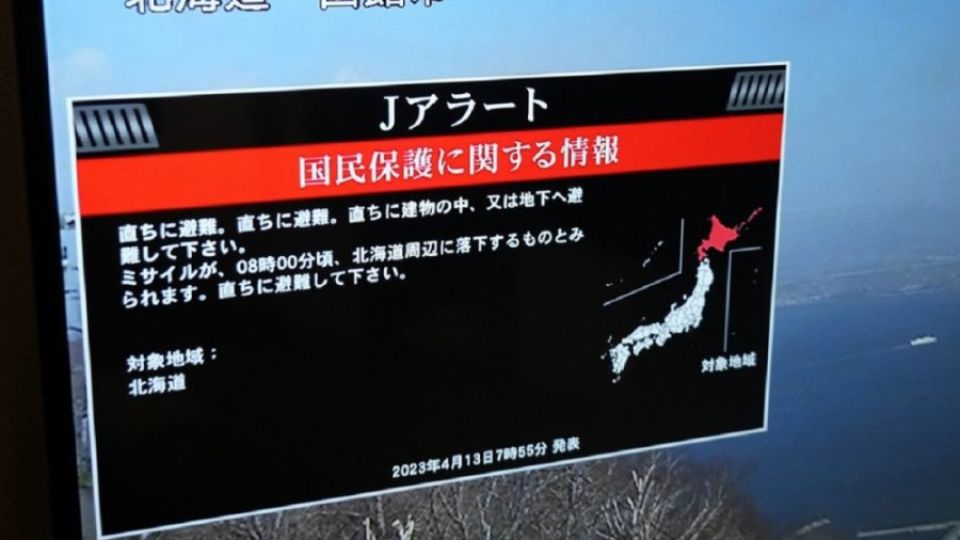April 14, 2023
TOKYO – North Korea launched at least one ballistic missile that fell into the Sea of Japan on Thursday morning, the Japanese Defense Ministry announced.
The missile, which was launched at around 7:22 a.m. and landed outside Japan’s exclusive economic zone, is believed to have been an intercontinental ballistic missile.
No damage to aircraft or ships has been confirmed.
Thursday’s launch was the first ballistic missile by North Korea since March 27.
The Japanese government triggered the J-Alert emergency broadcast system at around 7:55 a.m., warning that a missile could fall in the Hokkaido region. It subsequently lifted the warning.
According to the South Korean Joint Chiefs of Staff and other agencies, the launch location was near Pyongyang.
The missile was launched on a lofted trajectory at a higher angle than usual and flew about 1,000 kilometers.
A South Korean military official said it might have been a new type of solid-fuel ICBM.

Prime Minister Fumio Kishida speaks to reporters about the North Korean missile launch in Tokyo on Thursday morning.
The Yomiuri Shimbun
Immediately after the launch, Prime Minister Fumio Kishida instructed relevant agencies to do their utmost to gather and analyze information.
“North Korea has launched a ballistic missile. We have confirmed that it did not fall within our territory,” Kishida told reporters at the Prime Minister’s Office shortly after 9:00 a.m.
The Japanese government held a National Security Council Four Ministers meeting to discuss future measures and lodged a protest to North Korea via its embassy in Beijing.
North Korea will mark the birthday of former leader Kim Il Sung — the grandfather of the country’s leader Kim Jong Un — on Saturday, and the anniversary of the establishment of the Korean People’s Revolutionary Army on April 25.
The latest missile launch is believed to be aimed at enhancing the country’s national prestige and improving its technological capabilities.
According to the South Korean Unification Ministry, Pyongyang has not responded to regular communications with Seoul since April 7.
It is feared that North Korea might launch more missiles in the near future as it has adopted a more confrontational stance toward the administration of South Korean President Yoon Suk Yeol, which has promoted Japan-ROK-U.S. cooperation.
The J-Alert warning issued on Thursday morning was the seventh time Japan has triggered the system in connection with a North Korean missile launch.
The alert stated that a missile was “expected to fall in the Hokkaido area at around 8 a.m.” and advised local residents to evacuate.
The Defense Ministry later lifted the alert and issued a correction stating, “It has been confirmed that there is no longer any possibility of a [missile] landing in Japanese territory.”
The ministry explained the sequence of events at a meeting of the Committee on Foreign Affairs and Defense of the House of Councillors later in the day, saying “Based on information immediately after the launch, a J-Alert was issued because predictions indicated [the missile] could land in Japan. It was later confirmed that that was not a possibility.”
Chief Cabinet Secretary Hirokazu Matsuno said at a press conference, “The decision to issue the alert itself was appropriate.”

The Yomiuri Shimbun

